Changes to law firm pricing models and productivity were among the business-critical topics discussed at the Gazette’s latest roundtable. Eduardo Reyes reports
At the table
Eduardo Reyes, Law Society Gazette
Deborah Witkiss, Insight Legal
Emma Pearmaine, Ridley & Hall
Paul Bennett, Bennett Briegal
Corinne Staves, CM Murray
George Bisnought, Excello Law
Sonia Williamson, Vario
Laura Devine, Laura Devine Immigration
Rhicha Kapila, Bolt Burdon Kemp
John Wallace, Ridgemont
We went back to basics at the Gazette’s latest roundtable, discussing law firm pricing and productivity, along with recruitment and retention. But if these subjects are hardly novel, after a dramatic few years management strategies have had to adapt.
We start with productivity, which is just as critical to the microeconomy of a law firm as it is to the national economy. ‘Like other law firms we found productivity rose [during the pandemic],’ says Laura Devine, head of Laura Devine Immigration. That also applies to many support staff, she says, who ‘enjoy hybrid working’, though business development has not seen a corresponding productivity rise. She stresses that there is still value in old-fashioned business development – that is, ‘meeting people!’
Devine also cautions against focusing on chargeable hours at the cost of another important issue: ‘Keep your eye on supervision and training… informal, formal, internal, external.’
'For us, it’s not necessarily the extra hours that we billed on cases, or if people are at home doing extra hours, but it’s realising the rate of recovery as well, which we have to monitor'
Rhicha Kapila, Bolt Burdon Kemp
Rhicha Kapila, Bolt Burdon Kemp’s chief operating officer, says her firm’s focus on personal injury and clinical negligence makes its work vulnerable to matters outside the firm’s control, because it is dependent on the courts to progress and conclude cases. And of course there are costs in delays that cannot be recovered. So while the firm’s lawyers had high ‘utilisation’ amid the pandemic restrictions, ‘not all of that time was recoverable for us’. She continues: ‘For us, it’s not necessarily the extra hours that we billed on cases, or if people are at home doing extra hours, but it’s realising the rate of recovery as well, which we have to monitor.’

Pre-pandemic, the firm had already deployed flexible working arrangements. ‘It’s all geared around trust,’ Kapila says. ‘We treat people like adults, because we realise that one size doesn’t fit all. If people do choose the office, it’s because it’s the best place to carry out the task that they’ve got to do that particular day.’
Issues like productivity and working arrangements are now viewed through a new lens. ‘Wellbeing is a massive thing,’ Kapila adds. ‘We think that it increases productivity, because it allows people to do their very best work. We really should invest in our people, because obviously they’re our biggest asset.’
‘I think productivity is more than utilisation,’ adds Sonia Williamson, Vario’s head of managing services, client account management. ‘What lawyers have learned through the pandemic is the ability to refocus our time… one of the things I’ve seen is that the [novel] concept of having a 25-minute meeting or 50-minute meeting,’ she continues, rather than the default of scheduling 30 minutes or an hour. That means ‘making sure you have focused time; that there’s a point to the meeting; that it’s got an agenda; that it’s there for all the right reasons’. A more focused approach also frees up time to ‘have that break, get that bit of exercise’.
Looking forward… and back
‘I think the market is really fragmented after Covid,’ Paul Bennett, partner at Bennett Briegal, says, pointing to recent research by the Law Society’s Law Management Section. Some 56% of firms surveyed expect chargeable hours to remain broadly the same; 23% think they are going to increase; and 21% think they will fall.
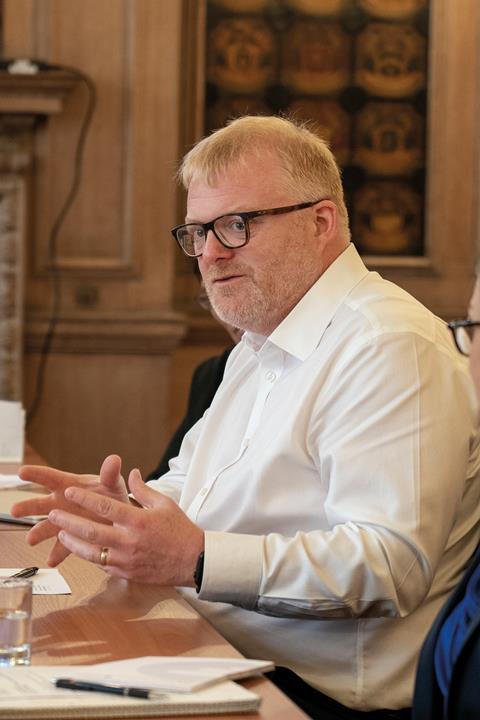
Figures from the Office for National Statistics paint a rosy picture for the legal sector, he noted. But Bennett, whose firm advises professional services firms, stresses that this is not the full picture.
‘What I’m picking up in the market is something very different,’ he says. ‘For some firms, the borrowings that they took out during Covid are coming home to roost. They’re worrying about tax changes for 2024 onwards, because those are going to impact on the partners and those firms that [have] limited company models.’ That is because of frozen, cut and changing thresholds for income tax which additionally affect the tax paid on share dividends.
At some firms impressive results were driven by hours that have got longer – in part enabled by the remote working arrangements that became normalised. John Wallace, partner at specialist property law firm Ridgemont, explains: ‘There’s this idea that everybody’s being more productive, but I think we’ve got to be concerned that everybody working for a law firm isn’t elongating their days by getting out of bed in their pyjamas and going to their desk at 8.30 in the morning and not leaving until 8pm at night.
‘Every fee-earner in this meeting knows that a tired lawyer is not a good lawyer.’
Wallace also worries about learning and supervision: ‘For the junior end of the profession, those who would otherwise have learned through osmosis and sitting with a partner, and hearing telephone conversations… the reality is that you just don’t get that in the new world.’
Pipeline
Corinne Staves, partner at CM Murray, questions the sustainability of some firms’ stellar financials. ‘We were busy throughout Covid, but a lot of that was dealing with work people already had,’ she reflects. Attention is shifting to pipeline, and here ‘some of the bigger and medium-sized firms are talking about the fact that the line of work is slowing.
‘I think it’s the “perfect storm” of not having done the BD activity during Covid,’ Staves adds. ‘Firms were also very profitable because costs dropped. Those costs are coming back in terms of discretionary spending and so on.’
Deborah Witkiss, chief operating officer at Insight Legal Software, sponsor of this roundtable, believes closer attention should be paid to work allocation within law firm teams. ‘Something I’ve seen a focus on within law firms is that they’re trying to make sure that it’s the right people doing the right things, not just getting [the work] done,’ Witkiss relates. ‘We work with lots of firms on putting digital workflows in place within their case management systems. Previously, there was always a big focus on just making sure that the right steps were in place in the workflow,’ she adds. ‘More recently there’s been a lot more focus on who’s doing it.’
We turn to the pressures on clients. Amid an economic downturn, Williamson notes, ‘clients are facing the “more for less” challenge’. In-house budgets ‘are squeezed even further’, she says.
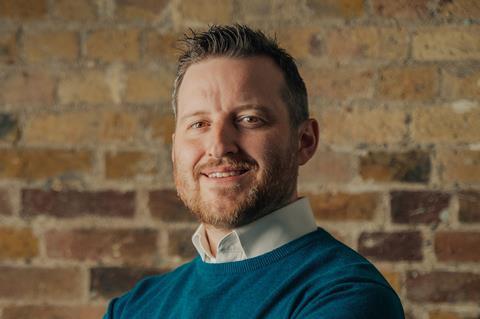
That places the onus on good delegation by firms, as Witkiss points out.
Williamson adds that clients also want to know how law firms’ use of technology can reduce their legal bills. This takes effect to varying degrees, she reflects: ‘The more specialist the field you’re in, I imagine the more challenging it becomes to implement [artificial intelligence] in a way that is really meaningful, because ultimately AI has got to be about sale and repeatability, and for law firms the ability to roll that out for more than one client.’
Is the use of technology one more arena where junior lawyers will lose valuable learning opportunities? Tasks that lawyers once carried out, in the process developing their networks and knowledge, will be automated.
Not necessarily. ‘I didn’t get a phone until I was in my twenties,’ Staves points out. ‘These people have developed networks and created friendships through screens and they can do this in a way that I will never be able to do comfortably. So, I think law firm leaders need to look to the next generation to help us, as a group, adopt new technology in new ways so that we can work together. They have a comfort with technology that I, frankly, will never have.’
‘In terms of automation and digitisation in law, I think it’s really a case of boats against the current,’ Wallace says. ‘Lawyers are really hesitant to use new technology. But the reality is in 50, 100 years’ time, our profession is going to be completely different to today… AI is already hugely successful with things like e-disclosure where computers are outperforming junior lawyers. And, that’s going to move on into other areas of the law. We shouldn’t be frightened of it.’
Wallace adds: ‘One key question I’ve got is who does it benefit? Does it benefit law firms by increasing productivity and net profit, or do we pass that on to the client by being able to do things less expensively and quicker for them? Within the profession we have to be thinking not only about ourselves, but also the client in that respect. The other thing [to note] is the impact on the client journey… It’s all very well us automating as much as possible, but what is lost there are human touchpoints.’
An automated journey, he says, is ‘not for everybody – even if the bill is less at the end of the day’.
'A lot of lawyers are saying to us the big thing for them is just having flexibility'
George Bisnought, Excello Law
Rewards and recruitment
Laura Devine, head of Laura Devine Immigration, notes that the ‘eye-watering salaries that Big Law is paying’ have enabled the bigger beasts to poach lawyers from her firm.
‘We don’t compete on salary, but we try to come up with other ways,’ she continues. ‘We try to be seen as caring, empathetic, considerate, collegiate.’
On retention, Excello Law founder George Bisnought says: ‘A lot of lawyers are saying to us the big thing for them is just having flexibility.’
‘I think succession is the major challenge,’ Paul Bennett of Bennett Briegal comments.
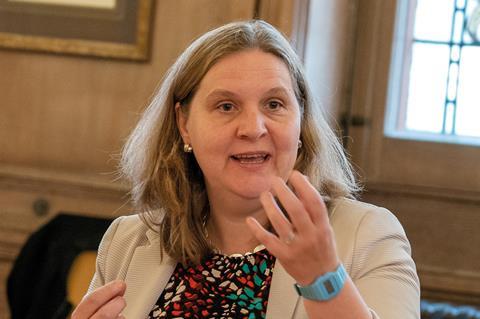
‘We have an ageing demographic in the smaller firms. That ageing demographic has fought its way through the pandemic, but has probably put off some of the difficult challenges and they will have to confront that. In terms of our client work, I would say probably about 15% is on working for firms who are looking at succession opportunities.’
On succession planning, Corinne Staves (pictured) of CM Murray says: ‘We need to be thinking about the breadth of roles that there are in the legal industry these days, rather than purely focusing on what has traditionally been the route to partnership starting as a trainee.’
Access to justice
Ridley & Hall managing director Emma Pearmaine reminds the group of pressures on access to justice that technology might ease. ‘In Leeds, over the last 12 months we’ve been very keen to bring small firms together to look at automation and digitisation, because it’s difficult to be innovative when any cash investment requires a guaranteed return,’ she says. ‘When firms work together, then we have more resources to be creative and to work on a test-and-learn basis.’

Access to justice, Pearmaine points out, ‘depends upon fundability and delivering within an affordable price point’.
Digitisation, some argue, has been bad for clients who do not have access to the relevant equipment and/or who lack skills. That may be less of a problem in the future, Pearmaine says: ‘In the direct-to-consumer market, the next generation’s shopping habits are very, very different. The next generation that’s coming through, now purchasing their first homes, don’t want to see a lawyer face to face. They don’t make any of their purchases face to face. All of their purchases are online. And they don’t even want to speak to you on the phone.’
But, Kapila cautions: ‘Sending our client automated correspondence isn’t the service that we’ll provide and it simply isn’t going to work; especially, for example, for somebody who’s got a brain injury.’
'The changes that law firms can make and the technologies they can invest in don’t have to be big. Automation doesn’t mean automating everything'
Deborah Witkiss, Insight Legal
Tried-and-tested seems to be the request from this group on software solutions in the law. ‘I’ve worked in the software industry,’ Excello Law founder George Bisnought reflects. ‘Unfortunately a number of failed projects came across my desk.’ Products must ‘fit with real-life processes and procedures’.
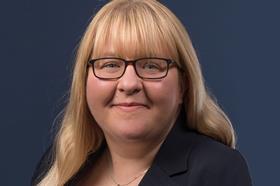
And as Witkiss points out: ‘The changes that law firms can make and the technologies they can invest in don’t have to be big. Automation doesn’t mean automating everything.
‘Some people still think that case management systems are these prescriptive, out-of-the-box tools which… make somebody follow a set path,’ she continues. ‘It doesn’t have to be [like that]. They can be the tools which create the supporting, guiding framework that working next to a partner might have given them.’
Price points
How should law firms price their services? To win work, to reflect their own operating costs, or to equate advice with its value to clients?
Devine begins: ‘In immigration, most law firms do fixed fees. We are looking at instructing an external pricing expert to look at our prices and to train staff, because I think we’re often looking at how much time is spent rather than value-pricing.’
Staves says: ‘From the perspective of commercial law firms, what we’re hearing is that they are facing increased costs. Like lots of businesses… they haven’t got scope to pass that on that to clients. For some time now clients have been saying to them, “Actually, we want more for less. We want you to demonstrate the value of what you’re offering us”.
But clients are not just beating firms down on price, she notes: ‘They’re being reasonable in the sense that they’re saying, “We’re not saying no to paying, but we want to know what you offer us”’. As a result, she says: ‘A firm would not be able to charge for a trainee sitting proofreading in the library nowadays… the model has changed.’
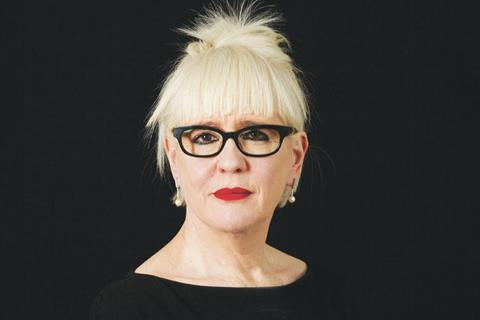
Has price transparency for legal services made a difference? ‘I don’t think there are many, if any, law firms [that] just put the clock on and then, at the end of the month, write, “Here’s your bill for how long it took us”,’ Staves says. ‘There is much more sophistication and transparency around cost. Firms don’t have the leeway to run over costs in the way that they had a generation ago.’
How might a ‘value’ element play out in a discussion about fees? Wallace’s experience shows that even in a high-tech era, it can come down to a personal relationship. ‘We act for a prime central London developer, and I’ve got a good relationship with one of the directors there,’ he says. ‘They’d instructed us on a matter which was a little bit complex, so we were talking about expected fees. The client said: “I don’t really care about this matter. We need to get it dealt with because it’s something that’s an issue with the business but it doesn’t have huge importance to me… So, I don’t want to pay a lot for this. But on the [other matter] that we know is coming down the line, I’m happy to pay you bigger rates to make up for it”.’
- This roundtable was kindly sponsored by Insight Legal





































No comments yet